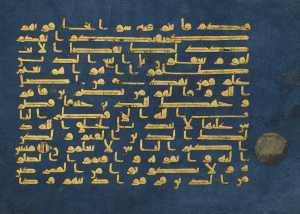Mohammad Fadel in Lapham’s Quarterly:
 What is shariʿa? It is often translated as “Islamic law,” as if it represented the law in its entirety. It is also commonly thought to be a rigid set of practices and punishments inherited directly from early Islam that are meant to be applied in a single inflexible manner. But none of this is accurate.
What is shariʿa? It is often translated as “Islamic law,” as if it represented the law in its entirety. It is also commonly thought to be a rigid set of practices and punishments inherited directly from early Islam that are meant to be applied in a single inflexible manner. But none of this is accurate.
Shariʿa is best understood as Islam’s specifically divine law, virtually synonymous with revelation. Muslims believe it to have been revealed to the Prophet Muhammad and principally transmitted through the Quran and his own teachings. But it was not itself the letter of the law followed by early Muslims. Acceding to the commands of revelation required further human interpretation, and this effort to use shariʿa toward the establishment of rules for a moral life has a different name: fiqh (literally “understanding”).
Muhammad died in 632, and shariʿa and fiqh developed in the following years, as his community needed to figure out how to proceed without his personal authority—especially as his successors, known as the caliphs, soon expanded his Islamic state beyond the Arabian Peninsula. They consolidated control over the Near East by driving out the Byzantine Empire from North Africa and the Levant and completely destroying the Sasanian Empire in Mesopotamia, Iran, and Central Asia. Islam then spread through the region.
More here.
